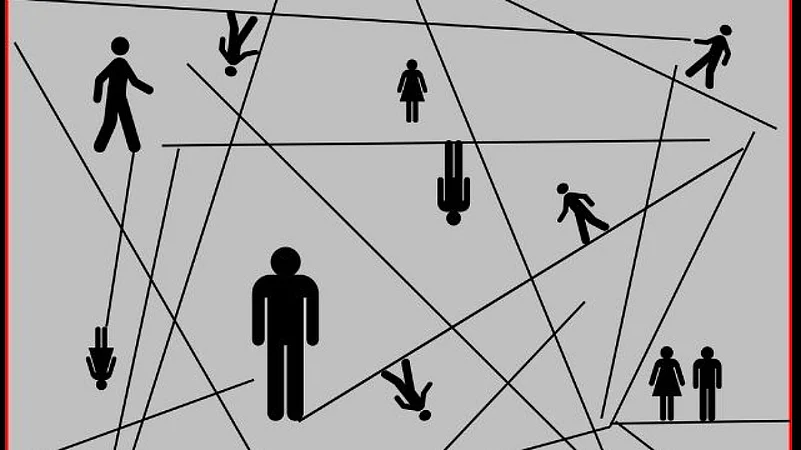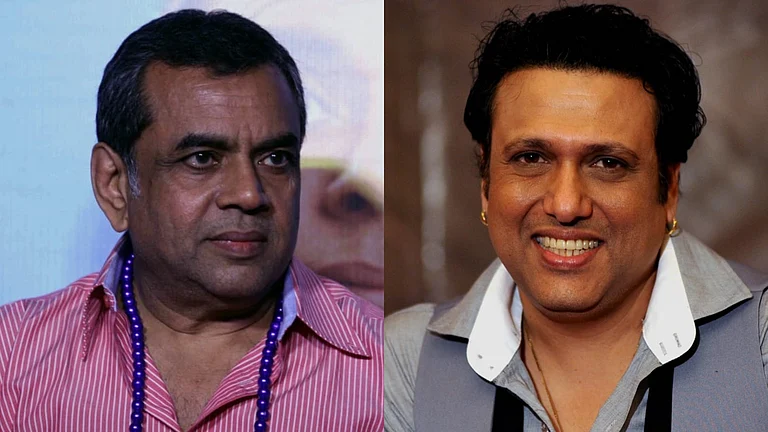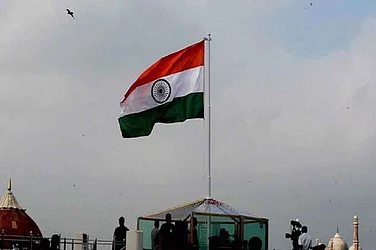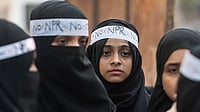On December 21, last year, Alexio Reginald Lourenco, Congress Party MLA from Curtorim, joined the Trinamool Congress (TMC) with much fanfare. While he was in the Congress Party, he was being wooed by the Aam Aadmi Party (AAP). As he was in talks with AAP leaders, he also met the state leaders of the BJP. Finally, he joined the TMC. However, two days ago, a month after he joined the TMC Lourenco quit his new party. On the invitation of BJP MLA turned Congress Party leader Michael Lobo, Lourenco came back to the Congress Party stating it was “home-coming”.

Confused? This is the political cauldron of Goa, which has seen 24 out of 40 MLAs defect to other political parties in the ongoing five-year term of the Goa Assembly. The hyperactive political arena of this tiny state has seen turbulence since the 2017 elections. Though the people’s mandate was for the Congress Party, it was the BJP led-by Manohar Parrikar which formed the government. Since that move by Parrikar which usurped the people’s mandate, Goa’s politics has been muddied and complex. The fact that 60 per cent of the Assembly has defected to parties across the spectrum does not augur well for Goa. Instability has been endemic to Goa.
Given the fluidity of the state’s politics, tactical considerations have changed rapidly. If ideology – as they scream hoarsely - is a factor that propels elected representatives to change parties, then Lourenco’s moves are puzzling.
Food entrepreneur Clement Fernandes is an angry voter. He is of the opinion that Goans should stop electing those who jump parties. “As a voter I am angry. Goans are tired of these MLAs jumping from one party to another. We have elected an MLA because we support that party. But when he jumps to another party and come asking for votes, do you think we should vote him back?” questioned Fernandes.
The defections began right after Parrikar formed the government in 2017. He had to undergo a floor test to show that the BJP government had the support they claimed. During the floor test, Congress Party heavyweight Vishwajit Rane left the Assembly mid-way. Parrikar won the vote of confidence. Some time later Rane joined the BJP, was elected on the party’s ticket and sworn in as the state’s Health Minister.
In that first year of Parrikar’s governance, two Congress Party leaders Subhash Shirodkar and Dayanand Sopte resigned from the party and crossed over to the BJP. Some months later a split in the right-leaning BJP ally, the Maharashtrawadi Gomantak Party (MGP) saw two out of its three MLAs form a separate group in the Legislature. Manohar Ajgaonkar and Deepak Pauskar then joined the BJP. This was after months after Parrikar passed away and Pramod Sawant was the new chief minister. Ajgaonkar was made the deputy chief minister in the Sawant cabinet. Three term member of the Goa Legislative Assembly, Atanasio Monserrate, was elected in the by-polls on a Congress Party ticket to fill in the seat (Panjim) left vacant by Parrikar’s demise.
In 2005, Monserrate, who was a minister in the Parrikar cabinet, resigned from the government with two other ministers, reducing it to a minority government. Eventually, the BJP government was bought down. Prior to the by-election, Monserrate switched sides, contested against the BJP candidate and won on a Congress Party ticket. In 2019, he rejoined the BJP with nine other Congress MLAs. These included the leader of the Opposition Chandrakant Kawalekar, Philip Rodriques, Francis Silveira, Isidore Fernandes, Nilkanth Harlankar, Antonio Fernandes, Clafacio Dias and Wilfred D’Sa.
This is a trend that has become a matter of worry for Goans. Sources say that corrupt practices have been institutionalized and there are corporate interests involved in the defections. “It is not a matter of an elected representative going from one party to another. These attempts are often engineered to suit vested interests,” said a source from the Department of Political Science – University of Mumbai. “Defections are a political weapon. Every politician has secrets in the closet. Elections are the time when the ruling party of the day uses it as a weapon for defections,” said the source.
Though defections are nothing new to Goa, the fact that over half of the 40 MLAs have defected from their primary parties to others is a seriously worrying factor, said sources. It also touches a record in political “lows”. The benefactors of the defections are BJP, Aam Aadmi Party (AAP) and the TMC.

In September last year, Luizinho Faleiro quit the Congress Party and went across to the TMC, where, in appreciation of his act, he was rewarded with a Rajya Sabha seat. Then independent MLA and minister Govind Gaude joined the BJP. Though Congress Party MLA Ravi Naik has been in close connect with the BJP for over two years, in the pre-election defection scenario, he finally got the call to switch-over. Goa Forward Party (GFP) legislator Jayesh Salgaonkar and independent MLA Rohan Khaunte joined the BJP. Both, Salgaonkar and Khaunte were close associates of GFP chief Vijay Sardesai.

With all intentions of joining the Congress Party, Khaunte had been pursuing its leaders for nearly two years. In these two years he had been very critical of the BJP and chief minister Pramod Sawant using the moniker “Pappu” when referring to the latter. However, something changed in December last year. The next thing happening was Khaunte joining the BJP.
The single NCP legislator Churchill Alemao told his constituents that he had not quit the NCP but had merged his faction of the party with the TMC. The NCP has strongly contested this and had even sought his disqualification from the Goa Assembly. Senior BJP MLA Pravin Zantye joined the MGP. Then, BJP MLAs Alina Saldanha and Carlos Almeida quit the party and joined AAP and Congress Party respectively.
The Congress Party, which has lost 15 out of its 17 MLAs to defections, had in December last year put out a tweet, “Will never let the defectors to re-enter Congress Party. The virus of defection will be put to an end once and for all”.


























